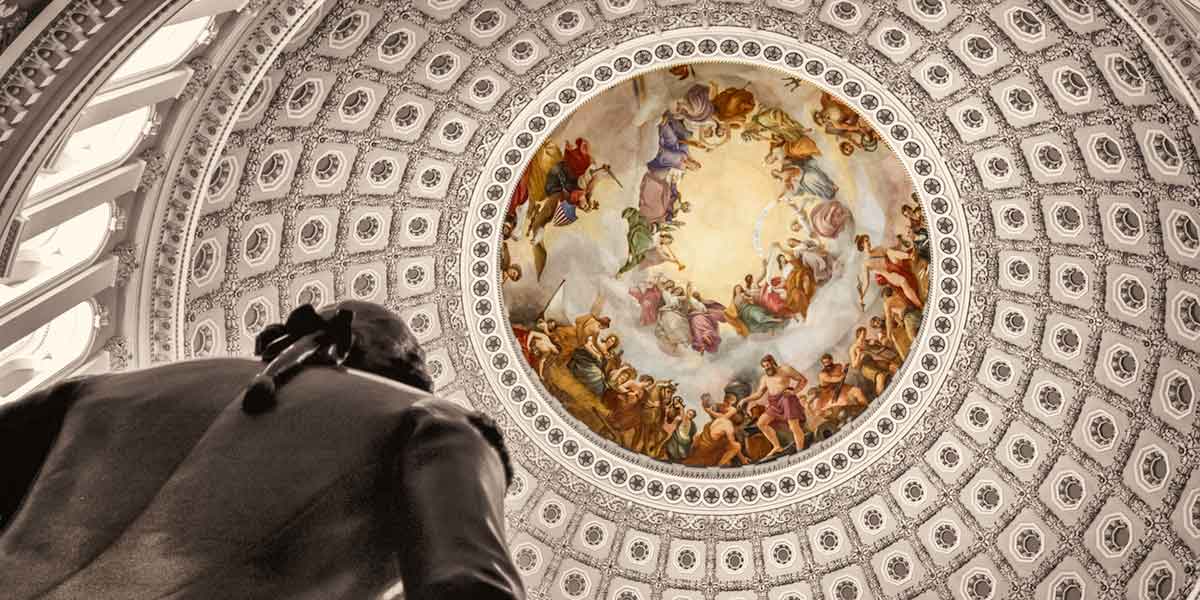U.S. Government

The current government of the United States of America was created in 1789 with the ratification of the Constitution, emerging from the remains of the previous government under the Articles of Confederation. When it was first created the government wasn't allowed to even implement an income tax. Today it is one of the largest and farthest reaching entities in the world—the U.S. government employs over four million people in civilian and military roles worldwide. Learn more about the legal and political backbone of the United States.
The Legislative Branch
The legislative branch is the section of the government concerned with creating and amending the country's laws. This includes levying taxes, approving the national budget, declaring war, and many more powers listed in the Constitution. The legislative branch includes the two houses of Congress and the agencies under congressional authority.
The Executive Branch
The executive branch is mostly identified with the office of the president, but it includes many parts of the government involved with enforcing the laws and resolutions enacted by the legislature. These include the different federal departments (like the Department of Defense or the Department of the Treasury) as well as many independent agencies. When most people refer to the executive branch, however, they mean the president, their vice president, and their cabinet.
The Judicial Branch
The judicial branch comprises the country's courts, above all the Supreme Court of the United States. Unlike other branches which are elected, the judiciary is appointed by the executive branch and approved by the legislative branch. The judicial branch serves to clarify and resolve disputes relating to government policies. Since the important case of Marbury v. Madison, the Supreme Court has also exercised the power of judicial review to determine if laws are legitimate under the Constitution.
Government Agencies
Government agencies are the largest part of the federal government, even if they receive the least attention. Agencies are responsible for actually implementing the policies of the government—the EPA creates specific guidelines to regulate the environment, the FTC reviews nationwide business practices, and so on. Most government agencies technically fall under the executive branch, but many of them have a degree of independence from the president.
Elections
The cornerstone of the government is its biennial elections, during which the public votes in and sanctions the members of the government for the next term—without free elections the government would lack legitimacy, and would cease to function under the Constitution. That means that who can vote, when they can vote, and how they vote have major impacts on the course of the government.
Further Reading
Glossary of Constitutional Terms
Three Branches of Government
Checks and Balances
How We've Changed Since 9/11
Post-9/11 Changes By the U.S. Government
The Governors of the Fifty States







